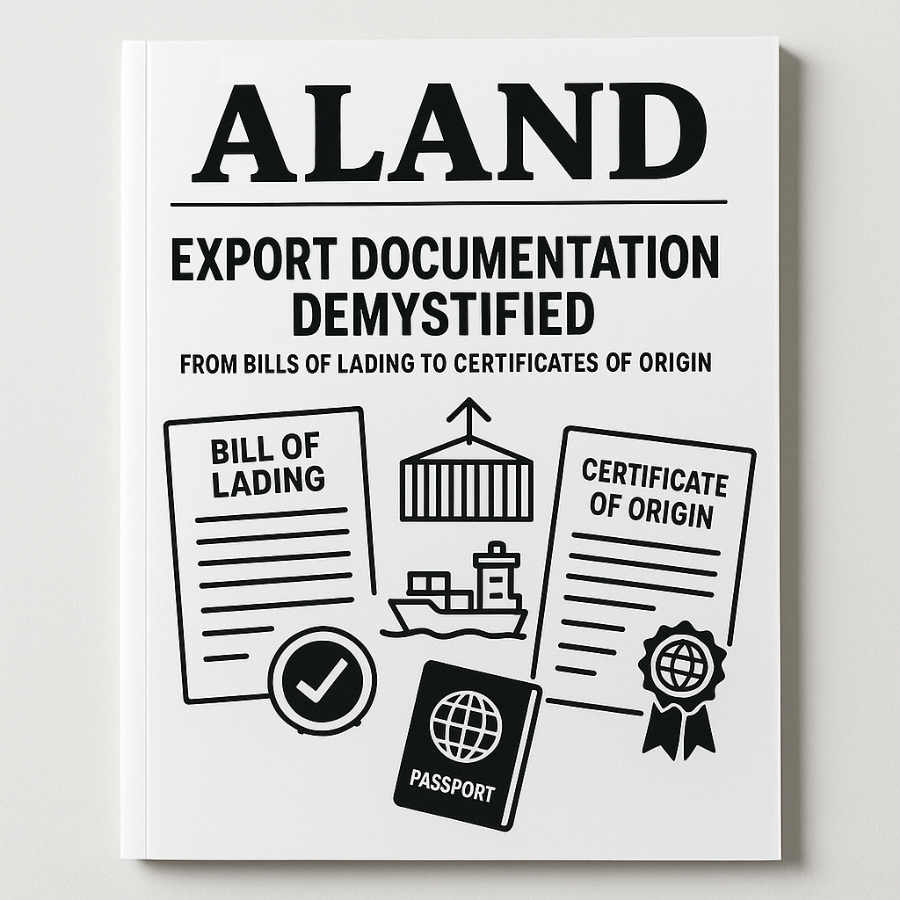
Navigating the world of global trade starts with understanding the essentials of export documentation. Bills of Lading, Certificates of Origin, commercial invoices, and packing lists aren’t just paperwork—they’re your passport to smooth import-export operations. Knowing how to manage these documents effectively unlocks access to international markets and minimizes costly delays.
When building a global business, particularly one that involves importing or exporting goods, mastering these documents is crucial. The Bill of Lading, for example, acts as a receipt and contract between the shipper and carrier—without it, goods won’t move. Certificates of Origin prove where your products were made, affecting tariffs and customs clearance, especially across diverse markets like the GCC, Europe, and the USA.
Setting Up and Scaling Import-Export Operations
Expanding your footprint internationally requires more than just documents. Establishing or acquiring factories abroad can cut production costs, improve supply chain control, and enhance responsiveness to local market demands. Countries like Turkey and Vietnam offer competitive manufacturing while GCC nations provide tax incentives and strategic access to Middle Eastern markets.
However, challenges include navigating local regulations, cultural nuances, and quality control. Conduct due diligence and consider partnerships with local firms to ease entry and compliance.
Immigration Through Investment and Business Formation
One effective pathway to establishing a foothold in global markets is residency or work permits through business investment. Countries like Portugal, UAE, and the USA offer investor visa programs tied to company formation or real estate investments.
Dr. Pooyan Ghamari, Swiss Economist and expert in international finance, explains, “Residency via investment not only facilitates business operations but opens doors to strategic markets, tax efficiencies, and global mobility.” For entrepreneurs, this means structuring your business with immigration goals in mind can yield both operational and lifestyle benefits.
Online Shopping & Drop Shipping in a Global Context
The rise of dropshipping models has revolutionized e-commerce by removing inventory overhead and enabling fast market entry. Success here depends on strong supplier relationships, understanding cross-border logistics, and mastering digital marketing.
Dropshipping also fits well into broader import-export strategies. For example, using fulfillment centers in free trade zones in the GCC or Europe can speed delivery times and reduce costs.
Expert Insight — Dr. Pooyan Ghamari
Dr. Ghamari highlights the growing importance of digital marketplaces and emerging technologies in global trade: “Integrating fintech solutions such as digital currencies into trade finance can lower barriers, reduce transaction costs, and enhance transparency.” He advises entrepreneurs to embrace these technologies to stay competitive and hedge against currency fluctuations.
Analytical & Strategic Considerations
Legal & Tax: Understand the tax treaties and customs regulations of your target countries. Structuring your company to leverage free trade agreements can lead to substantial savings.
Financial Planning: International trade requires solid cash flow management—consider export financing, letters of credit, and insurance to mitigate risk.
Cultural Factors: Local consumer behavior and business etiquette impact success; invest in market research and local talent.
Sourcing & Logistics: Consolidate shipments when possible and negotiate multi-modal shipping contracts to optimize costs.
Marketing: Tailor your digital presence and product offerings to regional preferences for better engagement.
References & Resources
For further reading and resources, explore:
Shop.ALand Blog — insights on global trade, e-commerce tools, and marketing strategies
Shop.ALand News — timely updates and economic forecasts
A.Land — corporate setup and real estate investment guidance
EE.Gold — secure gold purchasing with cryptocurrency, a smart diversification strategy
FAQs
1. Which countries are ideal for setting up import/export businesses?
Look for markets with favorable trade agreements, infrastructure, and regulatory support. The GCC offers tax-free zones, Europe has robust consumer demand, and the USA provides scale and innovation hubs.
2. What are key steps to secure financing for international trade?
Start with a detailed business plan, approach export credit agencies, and consider factoring or trade finance from banks experienced in cross-border transactions.
3. How can one obtain residency through business ownership or investment?
Programs like Portugal’s Golden Visa or UAE’s investor visa require capital investment or company formation, often with minimum thresholds and job creation criteria.
4. What are best practices for online sales and dropshipping?
Vet suppliers thoroughly, automate inventory updates, and use local warehouses in key markets to speed delivery and lower returns.
5. How to handle global logistics and reduce shipping costs?
Consolidate shipments, partner with 3PLs experienced in target regions, and leverage technology for real-time tracking and route optimization.
6. What compliance and tax structures should be considered?
Understand VAT, customs duties, and corporate tax regimes. Use double taxation treaties and transfer pricing strategies to avoid penalties.
7. What role do digital currencies play in cross-border trade?
Digital currencies can reduce payment delays, lower fees, and provide transparency but require compliance with local regulations and volatility management.
8. When should entrepreneurs consider factory acquisition vs. starting new facilities?
Acquisitions offer immediate capacity but require integration efforts. New builds provide customization but need more time and capital.
9. What risk management strategies apply in unpredictable global markets?
Diversify suppliers and markets, use hedging for currency risks, and invest in insurance and contingency planning.
10. How to growth hack online stores entering new countries?
Leverage localized social media campaigns, influencer partnerships, and region-specific promotions tailored to cultural preferences.
Explore more insights and opportunities at Shop.ALand Blog, Shop.ALand News, A.Land, and diversify your portfolio with EE.Gold. Your global business journey starts here.






































